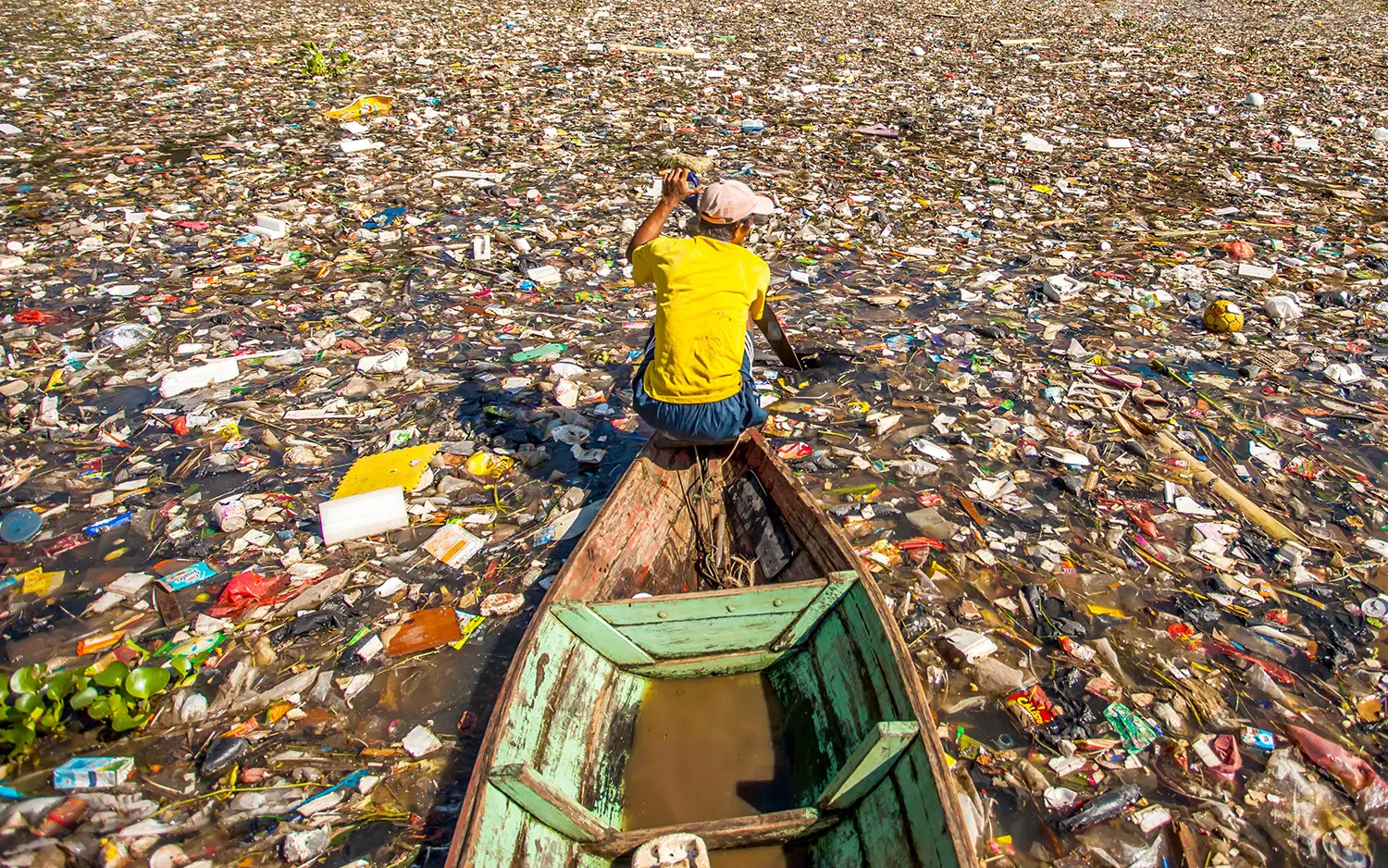
The global plastics crisis has reached a tipping point. As fossil fuel use in energy and transportation declines, the oil and gas industry has turned to plastics as its lifeline, doubling down on production to maintain profitability.
However, this surge in plastic production brings severe environmental and societal consequences. Amidst these challenges, plastic credits have emerged as a hot topic, particularly during the Global Plastics Treaty negotiations. But what are plastic credits, and do they provide a real solution or merely serve as another form of greenwashing?
Plastic credits are a market-based mechanism where companies can “offset” their plastic use by investing in projects that claim to remove or recycle an equivalent amount of plastic waste. For example, a Greenpeace investigation highlighted that some companies claim credit for recycling initiatives already underway, raising questions about the true additionality of these credits. For instance, a company producing one ton of plastic may purchase credits that fund the collection and recycling of one ton of waste elsewhere. The concept mirrors carbon credits, where companies offset their carbon emissions by funding renewable energy projects or tree planting.
Plastic credits share many similarities with carbon credits, including the potential for abuse. Carbon credits have been criticized for enabling companies to maintain harmful practices while projecting an illusion of sustainability. Both mechanisms operate on the principle of offsetting rather than reducing the root cause. Critics argue that these systems allow companies to maintain or even increase harmful practices while projecting a facade of sustainability. Just as carbon credits have been exploited for greenwashing, plastic credits risk becoming a tool for corporations to avoid accountability.
Plastic credits primarily address existing waste rather than reducing new production. According to the WWF, while plastic credits can fund critical waste collection and recycling efforts, they often fail to create incentives for reducing virgin plastic production, a key driver of the plastics crisis. As noted in a Reuters article, this approach sidesteps the growing problem of unchecked plastic production and over-reliance on fossil fuels. They focus on cleaning up plastic pollution, often in regions heavily impacted by mismanaged waste. While this remediation is important, it does not address the upstream issue: the relentless production of plastics. According to the World Wildlife Fund (WWF), plastic credits are insufficient for achieving true plastic neutrality because they fail to tackle the core problem of overproduction.
The waste targeted by plastic credit programs is typically post-consumer plastic waste, such as discarded bottles and packaging. While these efforts can reduce visible pollution, they often neglect harder-to-manage microplastics and industrial plastic waste. Furthermore, the effectiveness of these initiatives depends on robust systems for tracking, collecting, and recycling waste—systems that are frequently lacking in the Global South, where much of this plastic ends up.
Plastic credit schemes often claim to benefit communities in regions burdened by plastic pollution. However, the reality is more complex. In many cases, these programs fail to address the systemic inequalities that allow wealthy nations to offload their waste onto poorer countries. Critics argue that plastic credits perpetuate a “pollute now, pay later” model, where the burden of cleanup falls on communities least responsible for the crisis. In some instances, these schemes have been accused of exploiting informal waste pickers without offering fair compensation or long-term solutions.
The plastic credit market is largely unregulated, making it vulnerable to greenwashing and other deceptive practices. As noted by Reuters, this lack of regulation allows companies to focus on short-term waste solutions while neglecting the broader issue of plastic overproduction, which continues to grow unchecked. For instance, the NRDC pointed out the deceptive use of “mass balance” techniques by some companies, which can mislead consumers about the actual impact of their recycling efforts. For example, companies might exaggerate the impact of their credits or fund projects with little oversight, resulting in negligible environmental benefits. A Greenpeace investigation revealed that some offset programs claim credit for initiatives already in progress, providing no additional benefit.
While plastic credits may offer a temporary bandage for the plastics crisis, they fall short of delivering meaningful change. True solutions require a dramatic reduction in plastic production, a shift towards reusable and sustainable materials, and robust international regulations to hold corporations accountable. The Global Plastics Treaty offers a critical opportunity to enforce these changes, but reliance on mechanisms like plastic credits threatens to undermine its potential.
Plastic credits are not the silver bullet they are often portrayed to be. As GreenBiz aptly described, the market for these credits resembles a “Wild West,” with inconsistent standards and questionable claims of neutrality. Instead, they distract from the urgent need to reduce plastic production and transition to a circular economy. By exposing the limitations and risks of this flawed system, we can push for real solutions that prioritize environmental justice and long-term sustainability.
12/15/2024 – This article has been written by the FalseSolutions.Org team